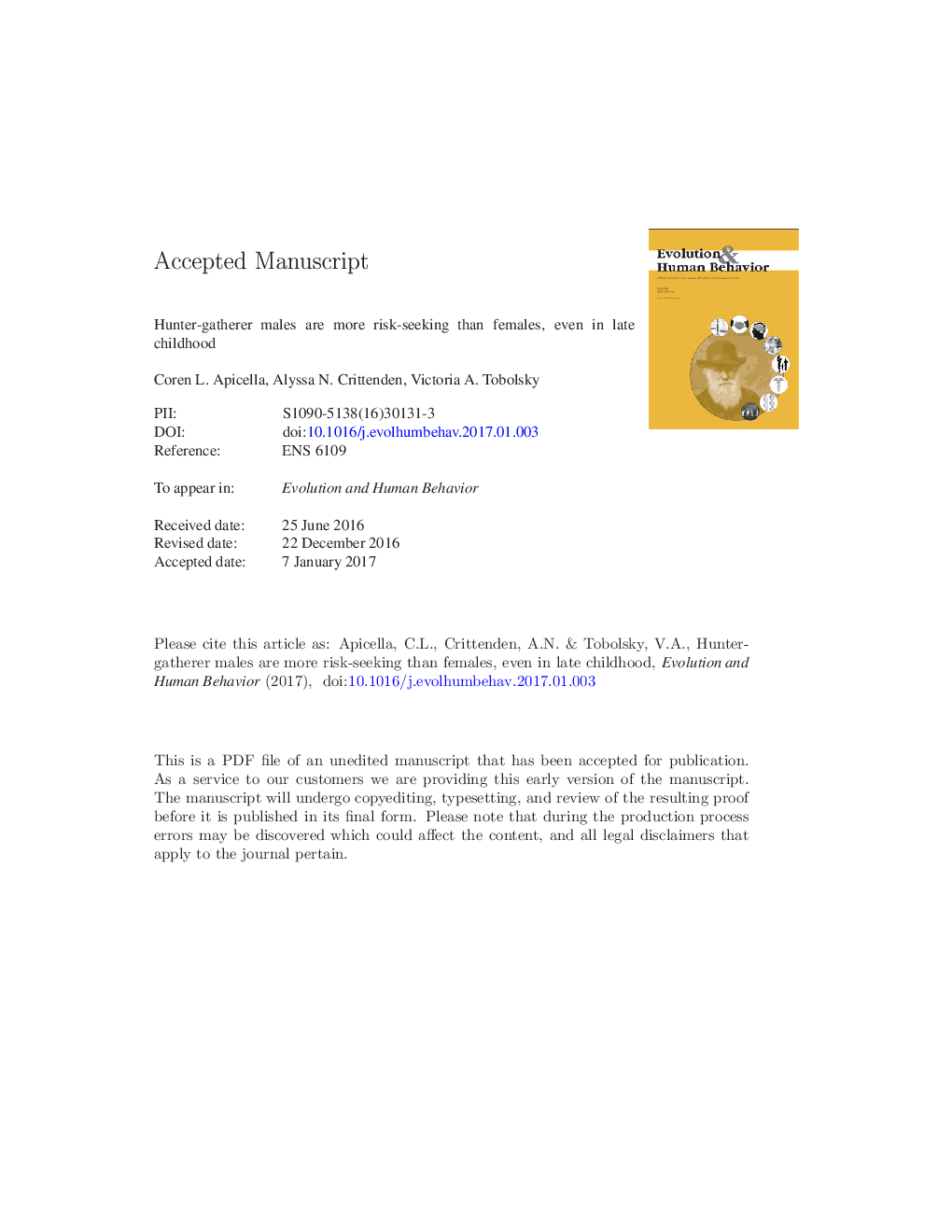ترجمه فارسی عنوان مقاله
حتی در اواخر دوران کودکی، مردان شکارچی جمع کننده به دنبال ریسک بیشتری نسبت به زنان هستند
عنوان انگلیسی
Hunter-gatherer males are more risk-seeking than females, even in late childhood
| کد مقاله | سال انتشار | تعداد صفحات مقاله انگلیسی |
|---|---|---|
| 104616 | 2017 | 32 صفحه PDF |
منبع

Publisher : Elsevier - Science Direct (الزویر - ساینس دایرکت)
Journal : Evolution and Human Behavior, Volume 38, Issue 5, September 2017, Pages 592-603
ترجمه کلمات کلیدی
تنظیمات ریسک، ریسک پذیری اقتصادی، هادس، شکارچیان، تفاوت های جنسی، تقسیم جنسی از کار، فرزندان،
کلمات کلیدی انگلیسی
Risk preferences; Economic risk-taking; Hadza; Hunter-gatherers; Sex differences; Sexual division of labor; Children;

